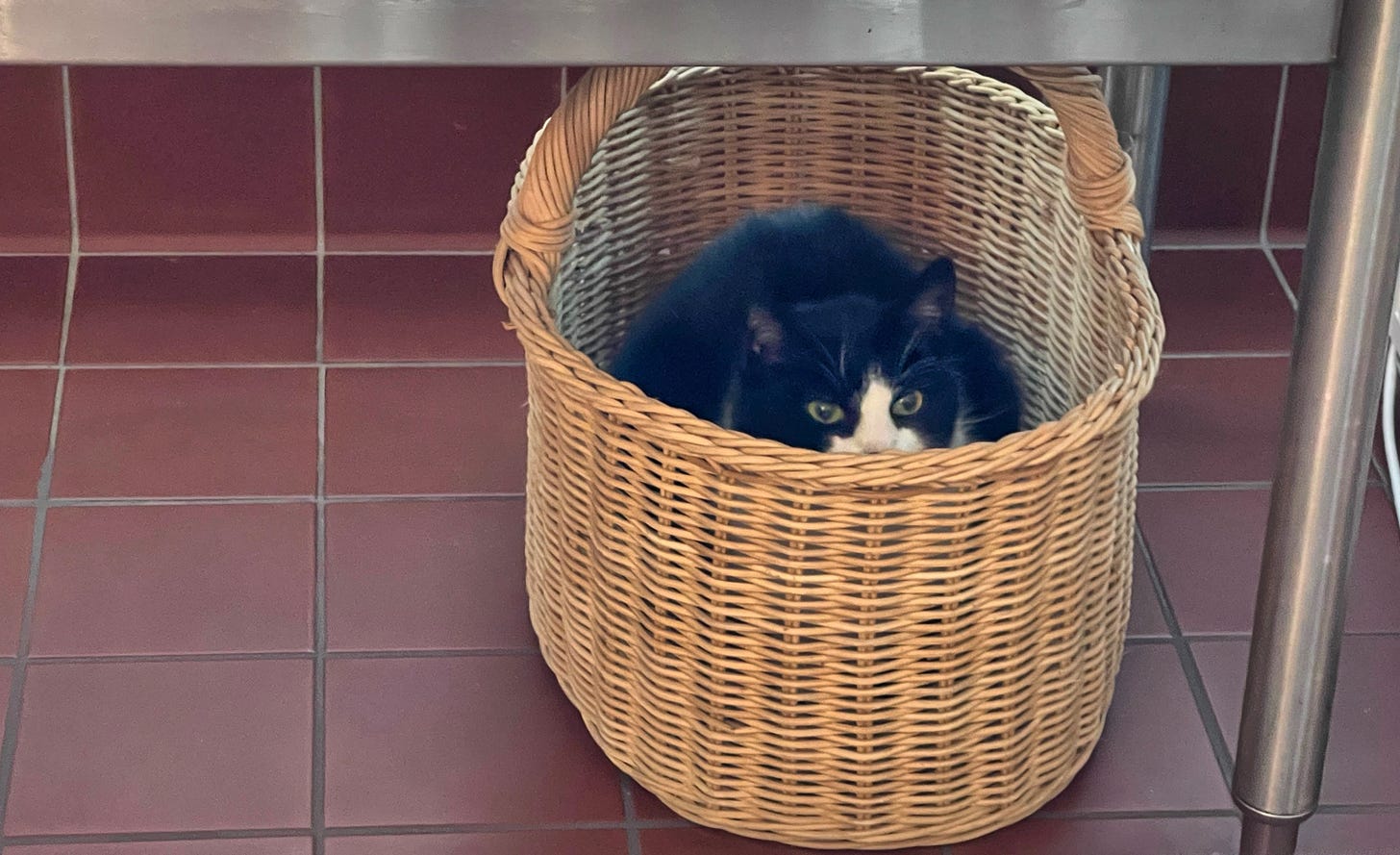Record numbers of Americans are alarmed or concerned about climate change
More worrying climate news and increasingly worried Americans in the week that climate action failure became the world's biggest risk.

This week, a steady stream of expert reports painted a picture of the state of our planet. But, unfortunately, not one of them gave a reason for optimism. And I know you probably want to read The Planet because it is often - as one of you recently wrote - your "fresh dose of oxygen." But sadly, these reports are all about a fresh dose of CO2.
The last eight years were the eight hottest since record-keeping began in 1880. Last year was the sixth-warmest year on record, according to data released by the U.S. National Oceanic and Atmospheric Administration (NOAA) and NASA.
There is a 99 percent chance that 2022 will join the top ten of the warmest years on record. Last year, there was cooling from La Niña in parts of the central Pacific that brings cold deep ocean water to the surface, and even with that cooling, 2021 still ended up in the top ten of warmest years. However, that effect will likely reduce this year. According to the National Weather Service's Climate Prediction Center, this year during the April-June period, there is an estimated 51% chance of a transition to a period in which neither El Niño nor La Nina is present, often coinciding with the transition between the two weather patterns.
Until we change our actions, the global warming trend goes up, and we should brace ourselves for more extreme weather events.

Last year, about a quarter of the world's population lived in a country that experienced the hottest year on record; that includes the people in China, Nigeria, Bangladesh, Iran, Myanmar, and South Korea. The warming in the past decades is perhaps best illustrated by the statistics that about seven out of ten people in the world have never in their lives experienced a year that was cooler than normal; 1976 was the last one.
On a side note: since I have clear memories of 1976, which I remember as a lovely summer that I spent in a forest in the east of the Netherlands, these data also make me realize that I have now joined the ranks of the 30 percent oldest people on the planet. If you also have memories of 1976, you're part of this top-30 too (if in any doubt if you were really there, it's a yes if this rings a bell: Jimmy Carter, the Concorde, 50 ways to leave your lover, Patty Hearst found guilty, low-slung jeans and crop-tops, the bicentennial, Apple 1, and a CO2 level at only 362 ppm that makes you longing for a return to the past)
The science is clear. In a nutshell: human activities, like burning fossil fuels or land use, increase the heat-trapping greenhouse gasses in the atmosphere. Most of that excess heat is absorbed in the oceans, and all that warmer water then influences weather patterns. Last year, record heat was stored in the oceans, fuelling more extreme weather. So hurricanes like Ida got energized by the hot waters they crossed before making landfall.
We know what causes climate change, we know it gets worse if we don't act, and we know what we should do about it. But the world's leaders just haven't worked out how or when they will do what needs to be done.
Alarmed Americans
The pile of reports that I read this week included a somewhat hopeful one, although that depends on your approach to the data. The Yale Program on Climate Change Communication found that Americans are increasingly worried about global heating. The number of Americans that say they are "alarmed" about climate change has grown from 18 percent five years ago to an all-time high of 33 percent. The remarkable increase was especially noticeable in the first nine months of 2021.
I believe this is positive news since being alarmed or concerned (the two most-worried segments out of the six levels that Yale uses) is a prerequisite for being serious about climate change. Six out of ten adult Americans are now either alarmed or concerned about global warming. The study also shows that Americans are becoming more engaged with the climate crisis and more supportive of climate solutions.
Together we can make a difference
I must admit that it is heartening to see so many Americans finally getting worried about the climate. It took many years of ever-worsening forest fires, floods, heatwaves, and hurricanes. Still, eventually, these modern versions of the first-class passengers of the Titanic realize that the situation is alarming. Now I feel less alone after being alarmed for so many years. Not that having more people on board helps to feel less alarmed; the decks of the Titanic were also steadily filling with more people, and that didn't do anything to change the outcome. But unlike those on board in 1912, this time, we can make a difference together. And that only happens if enough people are alarmed or at least concerned about the climate crisis.
I know that some of you are reading this in countries in the Global South. And I know that many of you have already experienced the devastating impacts of climate change for a much longer time. And yes, I agree that it's infuriating that the west first had to see climate destruction for themselves before they got alarmed.
Although I am optimistic about more alarmed Americans, I believe there is still room for more growth: forty percent of Americans live in a county hit by climate-related disasters in 2021, while only 33 percent of Americans are alarmed. It seems seven percent somehow missed the memo, or perhaps they just watched the wrong television channels.
Democracy is under threat
Meanwhile, democracy in the U.S. is malfunctioning and structurally under threat. Those six out of ten worried Americans would likely support the Biden Administration's "Build Back Better" bill that includes 555 billion dollars to fight climate change. At least, I suspect a considerable overlap with the 61 percent of Americans that endorsed the package in June and the same percentage of 61 that supported it still in December. Two months ago, the proposals were more popular than the president and the Democratic Party. However, it remains stalled in Congress.
The picture of American politics is deeply worrying. A lack of action on climate change is just one example, and it's directly linked to other issues like the influential role of business in politics that is unlike any other western democracy. It reduces the influence of individual voters, and therefore attention to their needs.
Polarization
Polarization and inequality increase and some leaders actively and knowingly create more divisions in society. For example, yesterday, I heard the previous U.S. President say at a "Save America Rally" in Arizona: "If you're white, you don't get the vaccine, or if you're white, you don't get the therapeutics" and: "In New York State, if you're white, you go to the back of the line if you want help."
Imagine any former president (with ambitions to go for another term as president) of any western democracy saying these words. Would the media ignore that? Yet, now that so many Americans seem to live in an alternate reality, it appears that the rest of the world simply accepts that other norms apply for the United States, or at least for one of the two main parties.
But whether non-Americans like it or not: America's democracy is a cornerstone for the stability we all need, especially since we live in dangerous times of multiple threats that all compound each other. I mentioned here the climate crisis, the role of the media, and democracy (and there are more). I'm worried about the path we are on, and it helps to know that 60 percent of Americans are alarmed or concerned about the climate crisis.

This week, the World Economic Forum published its annual risk report. Climate action failure got the top position as the most severe risk on a global scale for the next ten years. The erosion of social cohesion ranks number four. In case you needed any extra argument: a former president who called climate change a hoax, took his country out of the Paris Agreement, and who undermines social cohesion, may not be the ideal candidate in a few years from now to lead the world's most powerful country to a better future for all in a time of multiple crises. He risks becoming one of those ten risks himself.
I spoke about the World Economic Forum report in my latest podcast that I co-hosted with Alister Doyle, and you can listen to it here.
You can listen to Callin podcasts on the website or on the iPhone app.
I write this newsletter because I believe that together we can do better on this beautiful but fragile planet.
If you are a paying subscriber: thank you for your support!
If you are not, please consider supporting this initiative by taking a paid subscription.
If the cost of this newsletter ($6/month, $60/year) would create any financial strain, please stay on the free list; I value all readers.
The Back Page:
Meanwhile, in Ottawa, even Luna seems to have joined the 60 percent that’s alarmed or concerned.
Notes:

https://www.noaa.gov/news/2021-was-worlds-6th-warmest-year-on-record
https://climatecommunication.yale.edu/about/projects/global-warmings-six-americas/
https://www.cpc.ncep.noaa.gov/products/predictions/90day/fxus05.html







The former US President has encouraged his followers to deny our climate crisis, voting rights equality and more. More than ever, it’s essential we each speak up, stand up for what we believe. Every person can make a difference.
Thank you Alexander for your informed and inspiring commentary. Related, it seems along with responsible actions by legislative and corporate powers, an assessment of personal values by individuals is needed to help reverse the effect consumerism has had on global warming and climate change. I have to wonder what the difference of servicing human needs, versus out of control spending for personal needs, might be in helping to heal our planet. Let us protect all the 'Lunas' here on earth, cause 'its their home too'.